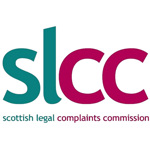Digital focus in new SLCC rules
The Scottish Legal Complaints Commission’s rules set out how we use the powers granted to us by the Legal Profession and Legal Aid (Scotland) Act 2007. They provide a framework for our process in dealing with complaints objectively, facilitating early resolution and acting proportionately in discharging our functions. Our current rules were last updated in 2016, and we are required to keep them under review, so an update is timely. We are grateful to those stakeholders, including the Law Society of Scotland, who responded to our consultations and helped inform this work.
Our 2020-24 strategy committed us to moving to a digital first approach, and the experience of the last few years has only underlined the importance of this. So, we specifically wanted to ensure that our rules reflect a digital focus in our operations and engagement with the profession. The changes take account of the changing external landscape and norms, including technology, communication methods and administrative tools. They include clarifying that, where appropriate, communications can be sent by electronic means, and that mediations, oral hearings and determination committees can take place using digital channels.
We will move to requesting information required from practitioners in digital formats where possible, to reduce delay and cost.
We also took the opportunity to respond to specific issues where we identified that a change would be desirable to update or to clarify our processes and procedures, or to help us improve our efficiency.
As such, we’ve removed unnecessary administrative barriers to making a complaint and clarified the information required by the SLCC in order to register a complaint.
In recognition of the time elapsed since the last changes to time limits came into force, we’ve brought all complaints into line with the three-year time limit. In practice, this only has implications for a small number of service complaints where the service was first instructed pre-April 2017. We have also clarified the circumstances in which the SLCC may accept a complaint that has not been made within the specified time limits.
We’ve recognised in our rules the significant proportion of complaints which we help parties to resolve successfully, and outlined the steps we may take to facilitate this.
Finally, with the introduction of alternative business structures in the legal services market in Scotland, the SLCC has new powers to act as the complaints body for both licensed legal services providers and approved regulators, and our updated rules include technical updates in relation to this new role.
Our new rules come into force on 1 April 2023 and apply to complaints made from that date forward. The full updated version of the rules can be viewed on our website, along with further details about the changes.
Regulars
Perspectives
Features
Briefings
- Criminal court: Court declines rape sentence guidelines
- Employment: Reopening discipline proceedings – fair do?
- Family: Mediation – will Scotland catch up?
- Human rights: Abortion, protests and safe access zones
- Pensions: A good funding challenge for employers?
- Property: Title conditions – what’s in a name?
- Property: Scottish Barony Register – 2022 annual report
- Property: QES in a post-Covid world
In practice
- Public policy highlights: February 2023
- Accredited paralegal roundup
- Risk: Wills – the signing pitfalls
- Keep the faith with fax
- Calculating your carbon footprint
- Digital focus in new SLCC rules
- The Trades House: a charity funds management option
- The Society in a changing world
- Ask Ash: Homeworking when ill?







